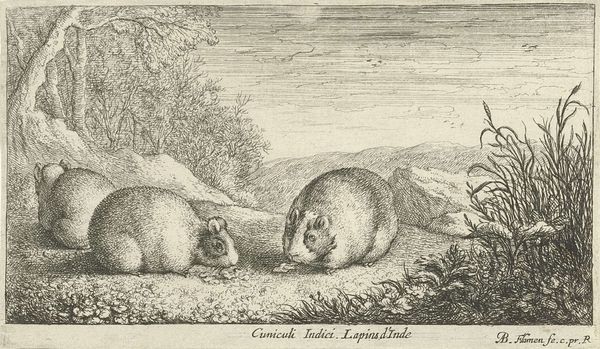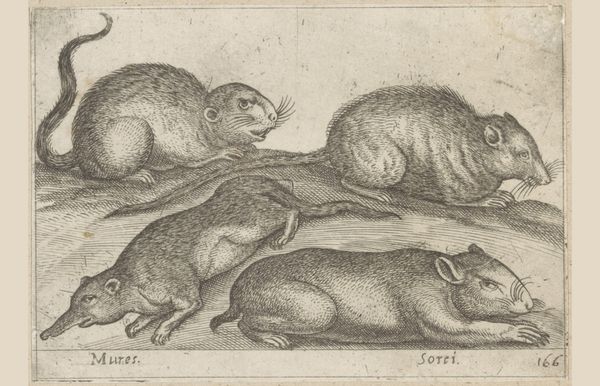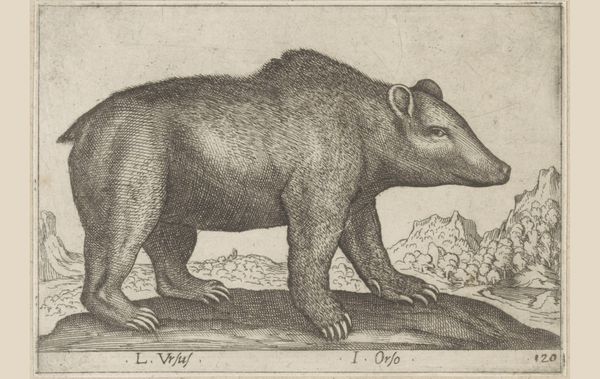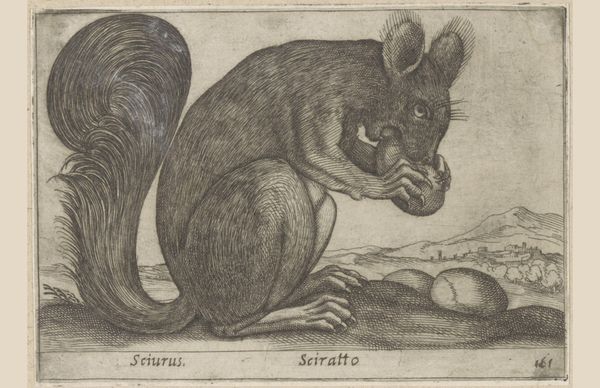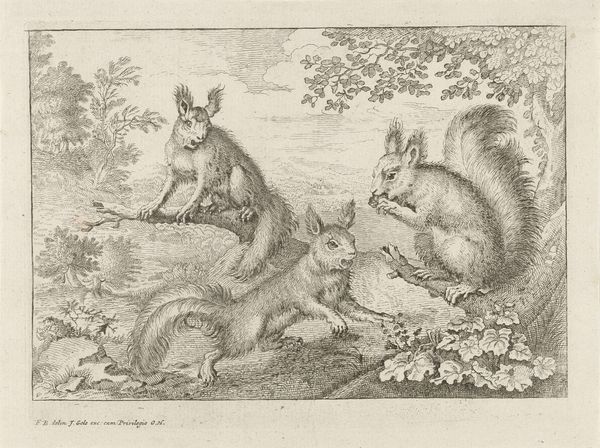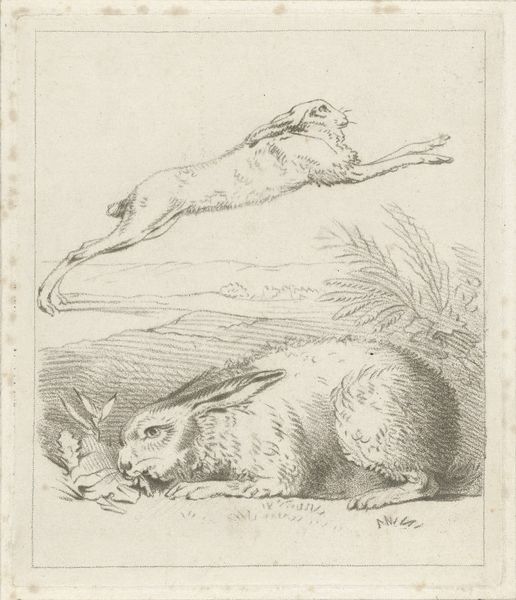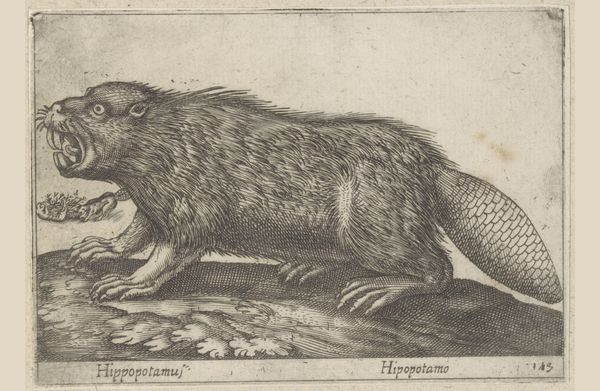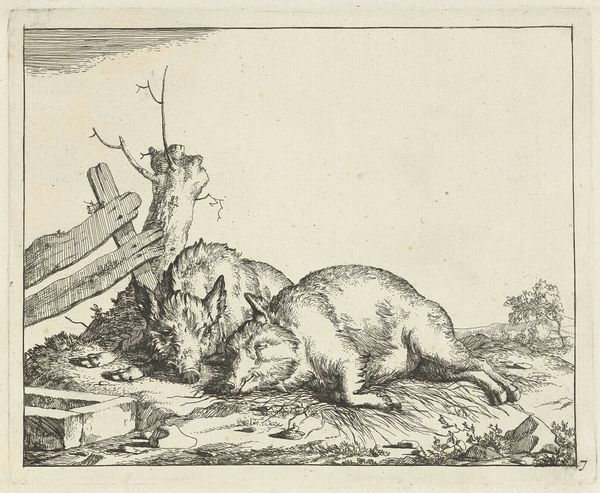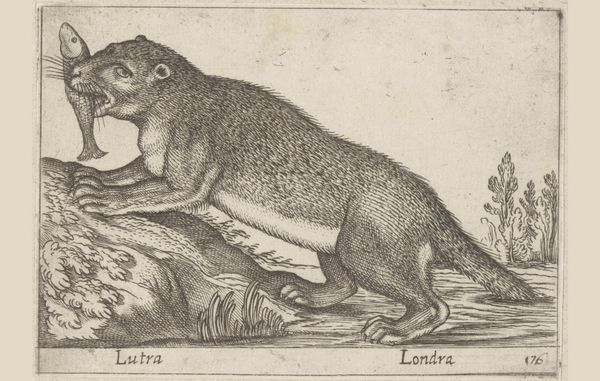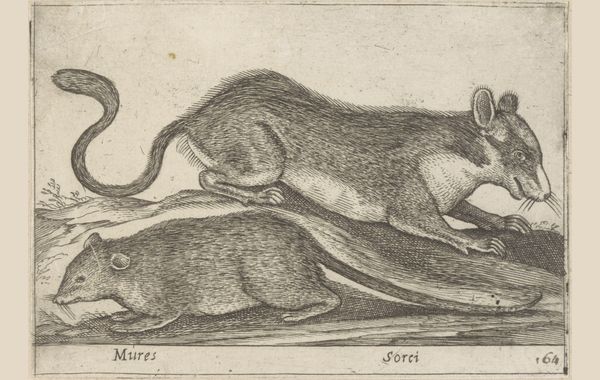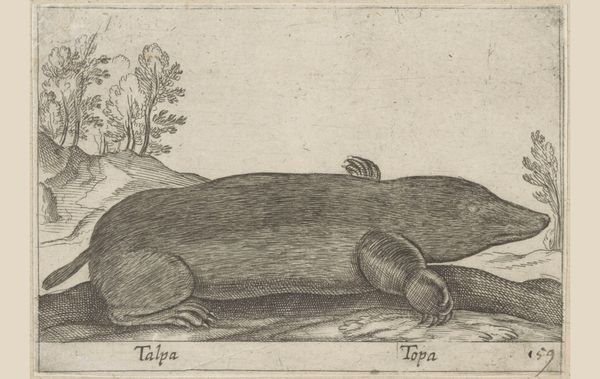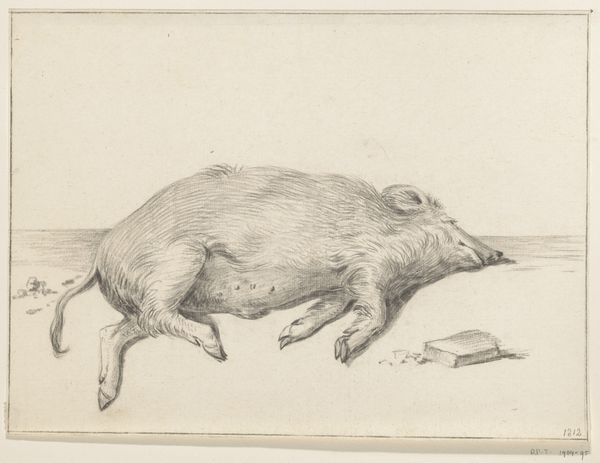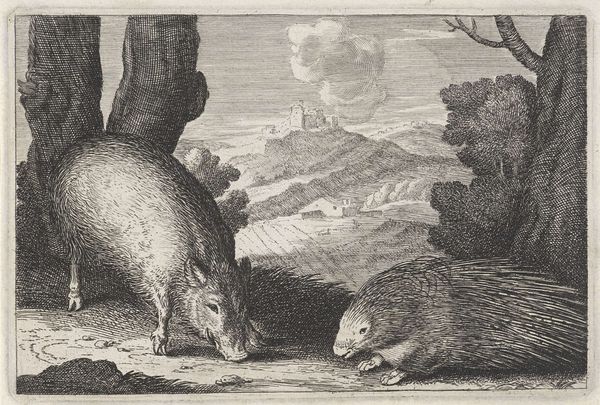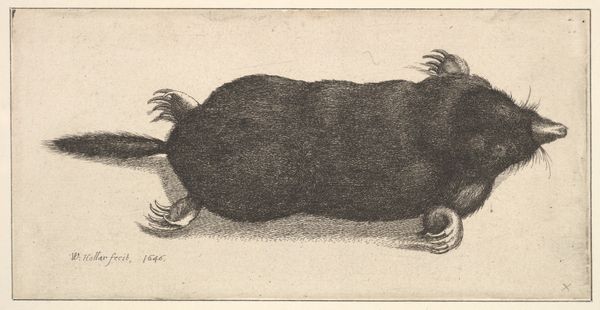
print, etching
#
animal
# print
#
etching
#
caricature
#
genre-painting
Dimensions: height 95 mm, width 137 mm
Copyright: Rijks Museum: Open Domain
Curator: This is "Twee muskusratten" by Antonio Tempesta, made before 1650. It’s an etching, so a printmaking technique, found here at the Rijksmuseum. Editor: It’s an interesting composition. It reminds me a bit of scientific illustrations, but with a slightly humorous tone. What do you see in this piece? Curator: Well, as a materialist, I’m immediately drawn to the etching process itself. The lines, the way they build up tone and texture—it's a very deliberate and laborious process. Consider the social context: printmaking was essential for disseminating information. Prints like this would have been relatively affordable. Who do you think would have purchased this kind of piece and why? Editor: Maybe naturalists studying the animal kingdom or wealthy merchants wanting to showcase their appreciation for nature? Curator: Possibly. Think about the raw materials used. The copperplate itself, the ink, the paper: all commodities that would have been part of complex trade networks. And the labor involved, both Tempesta’s skilled labor as an artist and the labor of those who mined the copper or made the paper. These details force us to question boundaries between art, craft, and commerce. Look at how the cross-hatching creates depth; imagine the hours of skilled hand-work required for a piece like this! It’s easy to overlook the materiality when we look at older pieces like this one. Editor: So it is as much about the “making” as the image itself? It's amazing how much you can unpack just from thinking about the materials and methods. Curator: Precisely! Analyzing these material conditions opens up a wider view to society and economies. Every artwork emerges out of production. Editor: It is a great way to look at pieces in a more tangible and relatable context. Thanks for your insights. Curator: It has been enlightening; looking at the means of creating and consumption provides a grounding effect.
Comments
No comments
Be the first to comment and join the conversation on the ultimate creative platform.
